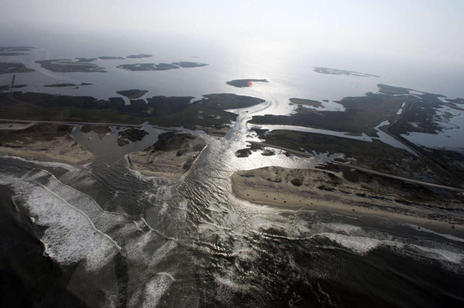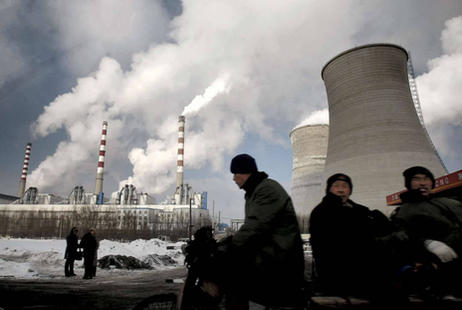Improving social and economic conditions |
Information for you in this issue of Progress Through Business
September 2015 Vol 63
|
|

Winning War on Poverty Demands Shifting
Focus to Fighting Unemployment
By John Hoffmire & Maren McInnes
In 1964, then-President Lyndon B. Johnson declared war. Not a foreign war to be waged against another country fought with soldiers, tanks and bombs, but a war to be waged at home.
The enemy: poverty. The weapons: initiatives intent on improving education, health, skills, jobs and access to economic resources for those stuck in poverty. The combatants: Congress and all Americans versus the nebulous concept of poverty. The victor: undetermined.
In his first State of the Union address, the new president declared "unconditional war on poverty in America." That was over 50 years ago, and this war is not over.
The strongest soldier in this fight has been the U.S. economy. But in order to combat poverty, there was an increase in government programs. For example, the Supplemental Nutrition Assistance Program (SNAP), formerly known as the Food Stamp Program, was made permanent by Johnson in 1964. Social Security benefits were also increased. With the start of Medicare and Medicaid in 1965, as well as the Affordable Care Act in 2010, medical assistance has also been increased greatly. These are just a few of the safety nets implemented by government to help Americans who are struggling to make ends meet.
And perhaps some of these programs have paid off. After all, new figures used by the Census Bureau's Supplemental Poverty Measure (SPM) show that poverty in America has declined from 25 percent in 1967 to 16 percent in 2012. That's a victory of sorts.
But this 9 percent victory came at a great cost. Please click here to continue reading the article. |

Climate Change Presents Skewed Vulnerabilities
and the Ethical Imperative
By John Hoffmire & Pankaj Upadhyay
The discourse around climate change is often spiced by vested interests, denial, skepticism, exaggeration and inertia. Even in rare constructive moments, the discussions are primarily limited to factual and technical analysis. This overriding focus on supposedly "objective" parameters only serves to blunt the effectiveness of our responses.
The European Science Foundation's recently completed Responses to Environmental and Societal Challenges to our Unstable Earth (RESCUE) project recognized that the issues about human life on a changing planet are first humanistic rather than scientific. Some sections of the scientific community itself recognize the ethical imperative of climate change. James Hansen, NASA's prominent climatologist, asserts: "the predominant moral issue of the 21st century, almost surely, will be climate change..."
Besides crying out for the immediacy of action, the magnitude of the global climate-change threat raises explicit ethical questions, such as how we ought to live and how humans should value and relate to each other and to nature. Inevitably, this ethical thrust will elicit some of the most vexing questions, including how to recognize and respect other persons, especially when they are vulnerable and lack the power and capacity to make their voices heard in relevant forums and arenas. This is pertinent as climate change invariably involves distributional conflicts, magnifying already skewed vulnerabilities since it interacts in unfortunate ways with the prevailing global power structure.
It is widely recognized that the responsibility for historical and current emissions lies predominantly with the richer, more powerful nations, and the poor nations lack the capacity to hold them accountable. The people most vulnerable to the direct effects of global climate change are those living in areas prone to flooding, such as small low-lying islands, large river deltas and certain coastal areas. Click here to read the remainder of the article. |
|
 Moral Deficits in Donations: A Case for Anonymous Giving By John Hoffmire & Greta Crofts
Anonymous giving is something we rarely talk about. Some might argue the nature of the topic makes it elusive; it is intrinsically invisible. Another reason we skirt around the topic is because some would prefer to not give anonymously, and to point it out is awkward.
People often want to be noticed when they give. For this reason, many organizations encourage the type of giving that leads to noticeable donations. This is often promoted by nonprofit organizations that want big and public donations. But it is becoming a more prominent fixture in fundraising as technology plays a larger role in giving.
Consider a business model that is becoming well-known: crowdfunding. On many familiar sites, more than two-thirds of people choose the option to be acknowledged publicly for their gifts. On the one hand, this makes sense. By making their names known, they may encourage others, especially those they know, to give also.
But shouldn't most giving be anonymous? Shouldn't the greatest satisfaction we receive come from giving, not for being acknowledged for giving? Shouldn't systems of giving encourage more anonymous gifts?
Charitable donation culture is often dominated by grand experiences. Fundraising events can involve red carpet affairs, expensive meals or gala receptions. Big races for cures are organized. Often humanitarian trips for donors are encouraged during which those who give visit the people of developing countries who receive assistance.
These efforts are good. But are they the best?
Click here to read more. |

Education About Alternative Energy
Options Remains Pressing Need
By John Hoffmire & Kylie Chen
Today the world consumes over 12,700 Mtoe (million of tons of oil or equivalent) or 1.47 E12 terawatt hours of energy. The majority of that energy consumption (92 percent) comes in the form of fossil fuels such as coal, oil or natural gas. However, these sources of energy are finite and are fast being exhausted.
With fossil fuels becoming scarcer, production must increase from alternative energy sources. Only about 8 percent of the world's energy consumption is in the form of these renewable sources; yet that number is growing each year as we actively search for ways to improve the quality and quantity of these energy sources. The use of water, wind, geothermal, solar, biomass and nuclear energies will help decrease our use of fossil fuel energy.
Hydroelectric energy (water) is the most commonly used renewable energy source, accounting for roughly 6 percent of worldwide energy consumption. Created when the gravitational force of water spins large turbines which drive large electric generators, just four major dams (located in China, Brazil and Venezuela) produce more than 10,000 megawatts of energy. While hydroelectric energy is a useable renewable energy source moving into the future, locations where dams can be built are finite, thus limiting the growth of hydroelectric plants in the future.
Wind energy uses wind to turn blades on wind turbines that power electric generators. Historically, a single windmill might be built to power mechanical machinery, but now large windmill farms have been constructed to provide power for entire communities. In 2014, wind energy contributed to 400,000 megawatts of renewable energy sources. Geothermal energy works in similar ways to wind and water energy, but instead uses hot steam from the center of the earth to drive turbines and generators. Currently, geothermal energy provides a very small source of energy output.
Solar power is the newest large option in the renewable energy portfolio. While large solar panel systems do exist, the majority of solar power is used on an individual level to provide electricity to a single household. Though solar panel systems are often expensive and produce small amounts of electricity, they are effective in bringing electricity to people in rural and developing areas who often have no other source of power. As a global solution for sustainable energy consumption, solar still has a long way to go. Click here to continue reading. |
Since 2004, Progress Through Business has helped in the creation and growth of companies located in distressed and underserved urban and rural communities and assisted residents of those communities to become entrepreneurs.
We write articles for online periodicals with an interest in influencing the climate around economic development. We help educate people toward becoming more financially literate and we complete free tax forms for low and moderate income people at sites located within the institutions where they are working and/or going to college.
Help us create 20 times more value for low-income individuals than we spend on all other parts of our organization combined. Click to Donate to Progress. Progress is an approved 501(c)(3) organization and donations are tax deductible.
Thank you for your time and we hope that you will continue to stay in touch with our organization and be involved in your community.
|
|
|
|
|
Copyright © 2015. All Rights Reserved.
|
|
|
|